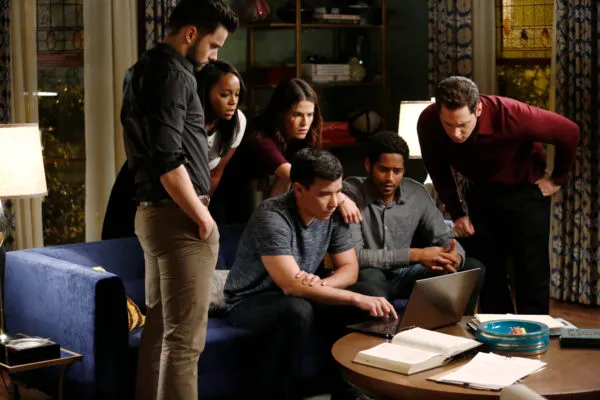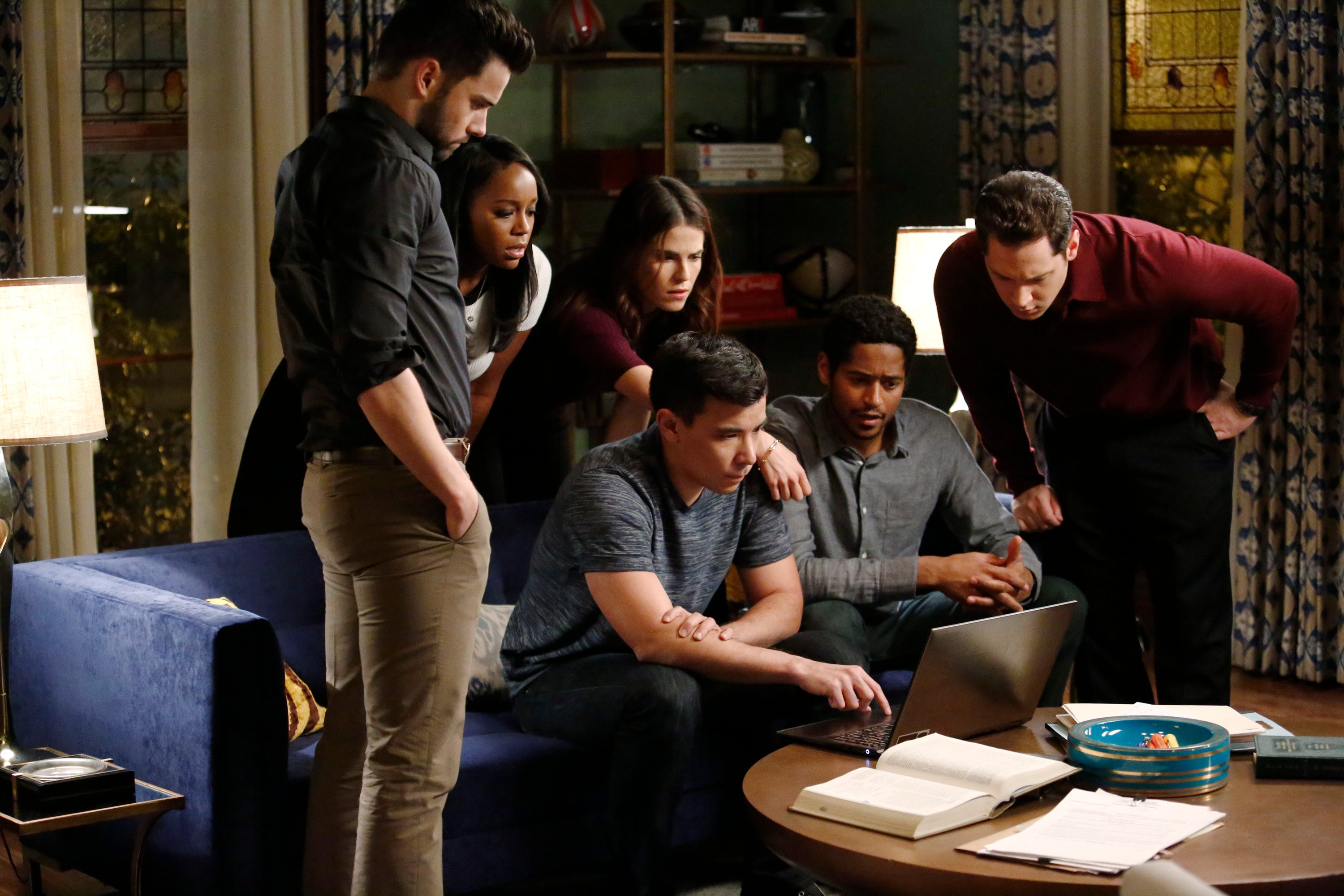
Note: spoilers ahead.
Three seasons in, “How to Get Away with Murder” is struggling to challenge its viewers. After an innovative three seasons of deceptive twists, turns and cliffhangers, the ABC Shonda Rhimes serial drama finally loses its grip on what it so carefully crafted.
The midseason finale of HTGAWM was bold and brash, and its shocking move of killing off Wes opened up plenty of new paths for the show: developing certain side characters (Bonnie or Frank), questioning Wes’ ethical motives and developing newly formed romantic relationships. Instead, HTGAWM spent a grueling two hours grinding away at obnoxious plot points, ending with an unexpected yet ultimately bland explanation for Wes’ demise.
HTGAWM typically makes great use of cinematic devices and techniques that delight audiences like the “plant and payoff.” In this case, I was expecting something clever to have been planted earlier in the season that then might have explained or even warranted Wes’ assassination by someone we always recognized on the show.
Alas, all we got was the introduction of a new character: Dominic. At first, Laurel is shown to have a mysterious connection with him before it is revealed that Dominic is, in fact, one of her father’s henchmen, and that Laurel, in fact, knows him well, but doesn’t know what he is capable of. The question I ended up asking myself over and over was, “Who honestly killed Wes?”
Partway through the two-hour finale, I suspected something was up when Laurel begins to run into this Dominic guy that we’ve never encountered — or, at least, he wasn’t memorable enough to remember. With the plot of this series relying so heavily on flashbacks and reveals, inserting a new character is risky, especially in the last episode of an action-packed season.
Dominic is the one who is eventually revealed to have killed Wes, not through some personal vendetta or some troubled thinking on the part of Frank or Wes’ estranged biological father, but instead on the weakly established character of Laurel’s father, an extremely wealthy yet sketchy Mexican businessman.
While this point leaves the show wide open for future seasons, Wes’ death felt like a letdown. Laurel’s father has been mentioned a couple of times throughout the course of the show, but he’s never really been well-developed . Laurel has used him — and his money — to get out of tricky situations, and although he’s shady, he seems to mean well. This time around, it’s implied that Wes’ death is a hit job; as viewers, we know that her father has an issue with Laurel dating Wes, but this seemed entirely too random.
HTGAWM relied on such a circuitous path to go from Wes’ death all the way to the reveal of his killer, yet in one fell swoop, I felt like I wasted all those hours getting to a wholly unsatisfactory explanation.
The finale spends far too much time lingering on the obnoxious behavior of Connor and Bonnie. While Michaela steps up as the “adult of the group” and into Annalise’s shoes as Annalise battles it out in court over her murder charges, Connor wastes breath questioning whether Wes deserved to be killed. Rightfully, the rest of the Keating 4 argue on Wes’ behalf, but Connor can’t seem to let go of this.
HTGAWM seemingly needed an excuse to drag on the show an extra few episodes, which it got out of Connor’s whiny behavior and hesitance to go along with the group. The show spent a great deal of time cultivating the relationship between Connor and Oliver, but decided to quickly wreck it by making Connor completely unlikable.
HTGAWM also forces Bonnie to revert back to her meek, useless self, which was uncharacteristic of her character development as she grew more and more into her role as unofficial caretaker and overseer of the Keating 4’s cover-ups of their illegal activities.
Bonnie grovels enough at Annalise’s feet throughout the entirety of the season, so when the finale came along, Bonnie essentially can’t function — she can’t help Annalise in course and she begs for forgiveness, even after everything that she’s done for Annalise. Again, HTGAWM has to rely on character traits that are pretty much unnecessary and invalid this far along in the series just to get to the two-hour mark of the finale episode.
To HTGAWM’s credit, Season 3 also spent a bit of time building the relationship between Asher and Michaela. I personally didn’t think I’d like it, but they grew into a sweet, loving pair. Michaela’s softer side especially was brought out, giving her character a multifaceted look as both an intense, highly intelligent law student and all-around badass as well as an interesting, caring person.
Their personal dynamic countered what I felt was a very abrupt relationship formation between Laurel and Wes, which felt extremely forced and unnecessary. Asher and Michaela complemented each other in both personality and behavior, while Laurel and Wes became toxic and too reliant on instinctual attraction.
Nevertheless, HTGAWM’s Season 3 finale was messy. Even if it did fulfill the serialized nature of the series, it failed to properly grasp what audiences grew to love in its first three seasons. So much time was spent on trying to fill two hours’ worth of material, that even if the intention was to make Wes’ murderer someone not in the original continuity of the series timeline, it came off as a fatally poor choice.
Contact Olivia Popp at opopp ‘at’ stanford.edu.
